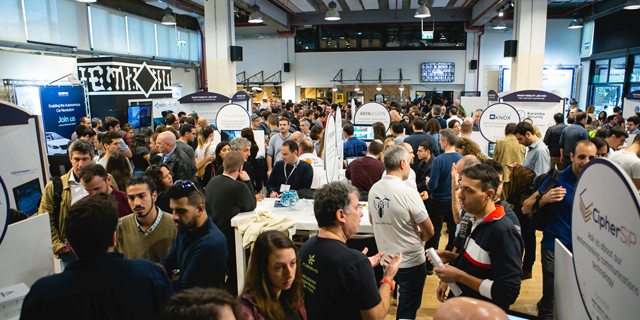
Mobileye, General Motors, BMW to Hunt for Talent at Tel Aviv Job Fair
Ahead of the fair set to take place Friday, Israeli non-profit organization EcoMotion collected data on Israel’s smart mobility workforce
Udi Etsion | 16:52, 27.01.20
Nearly a third of smart mobility companies in Israel reported most of their employees are alumni of Israeli research university Technion Israel Institute of Technology, according to data reviewed by Calcalist and gathered by Israeli non-profit organization EcoMotion, dedicated to smart transportation technologies.
Among the companies participating in the fair and hoping to recruit a total of around 250 employees are Intel subsidiary Mobileye, General Motors, Renault–Nissan–Mitsubishi, and BMW.
Participating startups include ridesharing company Via Transportation Inc.; car sensor startup Guardian Optical Technologies Ltd.; autonomous driving startup SoftRide Technologies Ltd.; high-resolution radar startup Arbe Robotics Ltd.; automotive cybersecurity companies Argus Cyber Security Ltd. and Guardknox Cyber Technologies Ltd.; car data broker Otonomo Technologies Ltd.; and 3D imaging sensor company Vayyar Imaging Ltd.
Nearly a quarter of the companies are looking to hire software engineers, while 10% are looking for algorithm engineers, followed by 7% for each of the following fields: research and development, hardware engineers, and data scientists.
EcoMotion collected the data from 30 companies taking part in an industry-specific job fair at Tel Aviv’s city hall on Friday. Of the companies questioned, 28% stated most of their employees were veterans of Unit 8200—the Israeli military's equivalent to the NSA and British GCHQ.
When it comes to diversity, smart mobility companies appear to be no different than the rest of the tech industry, with an average of 21% female employees. Two of the companies questioned—mobility analytics company Anagog Ltd. and ride-sharing company GoTo Mobility Ltd.—reported women made up over 50% of their workforce.
Despite reports that the autonomous vehicle revolution might be postponed due to regulatory and technological difficulties, 66% of smart mobility companies are developing technologies in this field, the data showed. It is worth mentioning though that most of these technologies are applicable for semi-autonomous vehicles, which are expected to be on the rise in upcoming years.